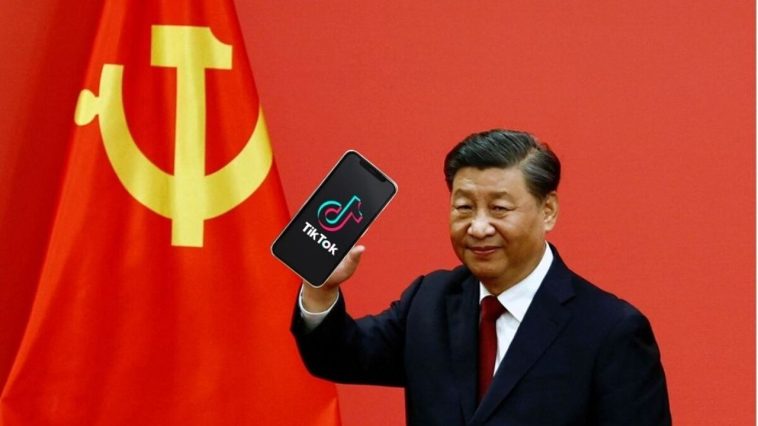LISTEN HERE:
A recent study found that TikTok, the widely-favored video application, seems to sway its content dissemination towards the goals of the Chinese Communist Party (CCP). The investigation, carried out on a Thursday, unveiled some intriguing statistics about the relative popularity of CCP-sensitive data on TikTok compared to Instagram.
The study’s architects hailing from the Network Contagion Research Institute and Rutgers University relied heavily on hashtag data to unearth their insights. The crux of their findings detailed that the substance deemed sensitive to CCP policies is less likely to be found on TikTok than on its competitor, Instagram.
By drawing parallels between the two social media platforms, the researchers discovered an interesting pattern. Whilst the count of posts about politically neutral or pop-cultural hashtags bore similarities, the posts covering CCP-sensitive topics showed a marked discrepancy. Instagram was found to host a larger number of posts on sensitive topics– something markedly absent on TikTok.
Topics that are highly sensitive to the CCP, such as the Hong Kong protests, the infamous Tiananmen Square incident, the Taiwan issue, and the discourse around Uyghurs, witnessed a more robust presence on Instagram. The study provided a stark contrast between the proportions of these topics encountered on both platforms.
In fact, for topics as controversial as #Uyghur and #AmazingTaiwan, the hashtag ratios on Instagram was alarmingly higher, reaching up to more than 8 to 1 and a whopping 1,000 to 1, respectively. It’s worth noting that TikTok’s creators come from a Beijing-based company, ByteDance, which is known to house an internal Chinese Communist Party committee.
ByteDance was founded by a proud CCP supporter, who once claimed the company to be an active amplified voice for the CCP. This was also echoed by the 2020 Justice Department legal filing which stated ByteDance as a ‘mouthpiece’ for the CCP.
The prominence of such hashtags directly impacting the Chinese Government’s interests might seem concerning, as described in the report. It was suggested that the influencers behind the imbalance need thorough studying. However, the research poses an initial assumption that TikTok may be implementing systematic methods to promote or demote certain content.
Hashtags revolving around widely-followed artists, trendy video games, and other popular culture such as #Drake, #Eminem, and #GTA showed differing ratios, valuing below or a little higher than 1 on TikTok. Likewise, politically-oriented hashtags not deemed CCP-sensitive, like #Trump, #BLM, and #Biden, also varied between similar data ranges.
In a social media rundown made by the Network Contagion Research Institute after the results were publicised on Thursday, the core query remained: Does TikTok, in fact, quiet or amplify content as per the CCP’s interests? Admittedly, the investigation appears to lean more towards an affirmative answer.
Mere weeks following the tragic Hamas-led terrorist assault on Israel that took place in October, the aftermath visibility on TikTok tipped noticeably in Palestine’s favor. Interestingly, the backing for Israel was markedly subdued on the platform. This could be largely traced back to the algorithms that TikTok employs.
Basing on data amassed between Oct. 23-30, posts with the hashtag #StandWithIsrael garnered a total of 64 million views. In comparison, posts with the hashtag #StandWithPalestine tallied a resounding 285 million views. This disparity in engagement suggested the app’s alignment.
However, TikTok spokesman Alex Haurek refuted the study’s revelations calling them ‘baseless’. He criticized the methodology for being skewed to lead to an unequivocal, yet erroneous conclusion. Haurek argued that those familiar with the workings of the platform can discern the authenticity and accessibility of the content firsthand.
Astonishingly, more than 2,800 devices from the Internal Revenue Service (IRS) had access to TikTok even after the issuance of a government ban. This startling detail was brought to light in a scrutinizing report released on Monday by the Treasury Inspector General For Tax Administration.
Unfortunately, both TikTok and ByteDance abstained from providing immediate comments when requested by the DCNF. The evidence presented by the Network Contagion Research Institute and Rutgers University’s study remains a source of controversy as it questions the transparency of TikTok’s content strategies and its possible alignment with the Chinese government’s interests.



